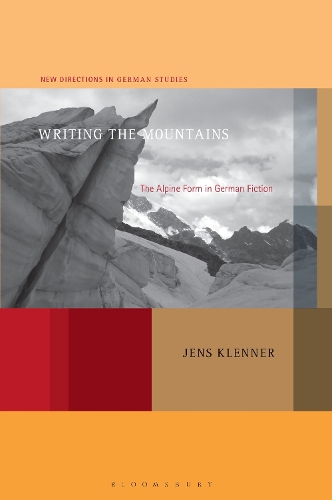
Writing the Mountains: The Alpine Form in German Fiction
(Hardback)
Available Formats
Publishing Details
Writing the Mountains: The Alpine Form in German Fiction
By (Author) Professor or Dr. Jens Klenner
Series edited by Prof Imke Meyer
Bloomsbury Publishing USA
Bloomsbury Publishing USA
13th June 2024
United States
Classifications
Professional and Scholarly
Non Fiction
Literary theory
Narrative theme: environmental issues / the natural world
830.936
Physical Properties
Hardback
208
Width 140mm, Height 220mm, Spine 16mm
380g
Description
Writing the Mountains reconsiders the role of the mountains in German language fiction from 1800 to the present and argues that in a range of texts, from E.T.A. Hoffmanns Die Bergwerke zu Falun (1819) to Elfriede Jelineks Die Kinder der Toten (1995) and beyond, the mountains serve as dynamic spaces of material change that generate aesthetic and narrative innovation. In contrast to dominant critical approaches to the Alpine landscape in literature, in which mountain ranges often features as passive settings, or which traces the influence of geographical and geological sciences in literary productions, this study argues for the dynamic role in literature of presumably rigid mineral structures. In German-language fiction after 1800, the counter-intuitive topology of rocky mountain ranges and unfathomable subterranean depths of the Alpine imaginary functions as a space of exception which appears to reconfirm and radically challenge the foundations of Enlightenment thought. Writing the Mountains reads the mountain range as a rigid yet permeable liminal space. Within this zone, semiotic orders are unsettled, as is the division between organic and inorganic, between the human and its other.
Author Bio
Jens Klenner is Assistant Professor at Bowdoin College, USA, and a Fellow of the German Studies Association. He has written extensively on German studies and philosophy, with one of his most recent works being the edited journal, Sprache und Rache (2019, co-edited with Juliane Prade-Weiss).
